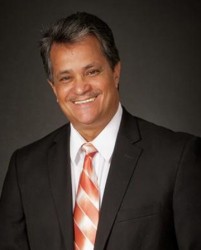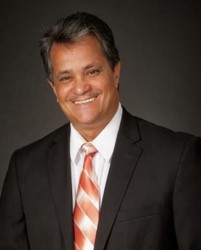Chief Executive Officer of Roraima Airways and high profile private sector businessman Gerry Gouveia has told Stabroek Business that he does not anticipate that political differences will undermine what he regards as a “necessary relationship” between the new political administration led by President David Granger and either the Private Sector Commission (PSC) or the private sector as a whole.
“Personally I will never be part of a partisan private sector. I believe that a professional private sector has to go beyond political persuasions and put this country first,” Gouveia told Stabroek Business in an interview earlier this week.

Asked whether he was aware of a perception in some quarters that some functionaries in the PSC may not be supportive of the policies of the Granger administration Gouveia, who has previously headed both the PSC and the Georgetown Chamber of Commerce and Industry (GCCI) told this newspaper that individual political preferences were not the driver behind policy formulation at the level of the PSC. “Of course I cannot speak for the personal political preferences of every member of the PSC. What I do know, however, is that there is a recognition on the part of the Commission of the importance of engaging the government on issues regarding the well-being of the private sector and the role which it has to play along with government in continuing to build the country’s economy. It is not my understanding that that has changed,” Gouveia declared.
With the new government about to end its third full week in office commentators are already pointing to the fact that the anticipated early engagement between the administration and the private sector through the PSC is yet to take place. Asked about the likelihood of such a meeting taking place in the short term Gouveia said that a decision had been taken to allow the administration time to “settle in” before seeking a meeting and that it was likely that such a meeting could take place “in a week” though he added that he was not as yet privy to the likely agenda for such a meeting. “I expect that in as general way such a meeting may address, among other things, the creation of an environment in which business can thrive,” Gouveia said.
Asked about whether he felt that differences would arise with the new administration out of allegations of collusion between officials of the previous administration and members of the business community in the perpetration of corrupt practices, Gouveia said that he saw no reason why such controversy should arise. “We must take the government at its word that there will be no witch-hunting and in those cases where there is verifiable evidence of corrupt practices, of course the law must take its course,” Gouveia said.
For all of the whisperings about the likelihood of a strained relationship between the Granger administration and the PSC, Gouveia told Stabroek Business that the private sector as a whole sees the advent of a new political administration as a new opportunity for Guyana and for public/private sector relations. “I am not aware of any hidden agendas,” he added.
The PPP/C administration had been widely accused of favouring friends of the regime in the allocation of lucrative state contracts whilst allegations of relationships between state officials and private sector businessmen that allowed the latter to evade customs duties and taxes and/or pay considerably less than they should have persisted for several years.
While political observers have alluded to what has been described as the coolness of the PSC’s response to the outcome of the May 11 general elections,
Gouveia said that in the final analysis the PSC could only be expected to work with the government of the day for the good of the business community and the country’s economy.










